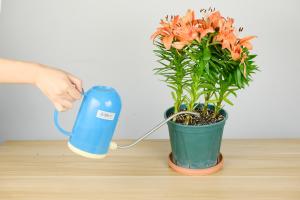Should You Water Plants in Sunshine?
Watering plants is an essential component of maintaining a healthy garden. It is common knowledge that plants require a sufficient amount of water to grow and produce healthy fruits and flowers. However, it is less commonly known when the best time is to water your plants. One of the most debated topics is whether or not to water plants in sunshine. Let's examine the pros and cons of watering plants in sunshine and determine if it is a good idea or not.
Pros of Watering Plants in Sunshine
Watering plants in sunshine can be beneficial in specific situations. For example, if you live in a region where temperatures soar above 90°F, water droplets on the plant's leaves can act as a natural sunscreen. The water droplets will absorb the harsh rays of the sun and prevent sunburn on the leaves. Additionally, watering plants in sunshine increases soil moisture levels, keeping the plants hydrated and healthy. Watering in the sun can also help reduce the risk of fungal diseases as the sun's heat can dry up any water caught between the leaves of the plants, avoiding fungus buildup.
Cons of Watering Plants in Sunshine
Watering plants in sunshine is not always the best thing to do. Water droplets on the plant's leaves can intensify the sun's rays, leading to leaf scorching, which can kill the plant. Additionally, water droplets can magnify the sun's rays and create a magnifying effect that increases the temperature and burn the leaves. When the sun heats water droplets on leaves, the water vaporizes, leaving behind mineral deposits, leading to yellow or brown marks on the leaves known as scorch marks. Lastly, watering plants in sunshine increases the risk of evaporation, resulting in less water reaching the plant's roots.
When to Water Your Plants
The best time to water your plants is during cooler hours of the day, such as early morning or late evening. Watering during these times reduces the risk of evaporation, ensuring that the water gets to the roots, where it is needed most. Watering early in the day ensures that the plants have the necessary moisture to carry out photosynthesis, while watering late in the day ensures that the plants have enough moisture to take them through the night. If you must water during the day, consider using a sprinkler or a hose with a fine mist that gently hydrates your plants without leaving behind large droplets.
Conclusion
Although watering plants in sunshine can be beneficial in specific situations, it is not always the best option. In most cases, watering in cooler hours of the day, such as early morning or late evening, is the best solution. Ensure that you water the plant's roots and avoid splashing water onto the leaves to prevent the risk of leaf scorching. As a gardener, you can determine when it is best to water your plants by understanding your plant's needs and the environment in which they thrive. By doing so, you will keep your plants hydrated, healthy, and thriving.

 how many times do yo...
how many times do yo... how many planted tre...
how many planted tre... how many pine trees ...
how many pine trees ... how many pecan trees...
how many pecan trees... how many plants comp...
how many plants comp... how many plants can ...
how many plants can ... how many plants and ...
how many plants and ... how many pepper plan...
how many pepper plan...




























